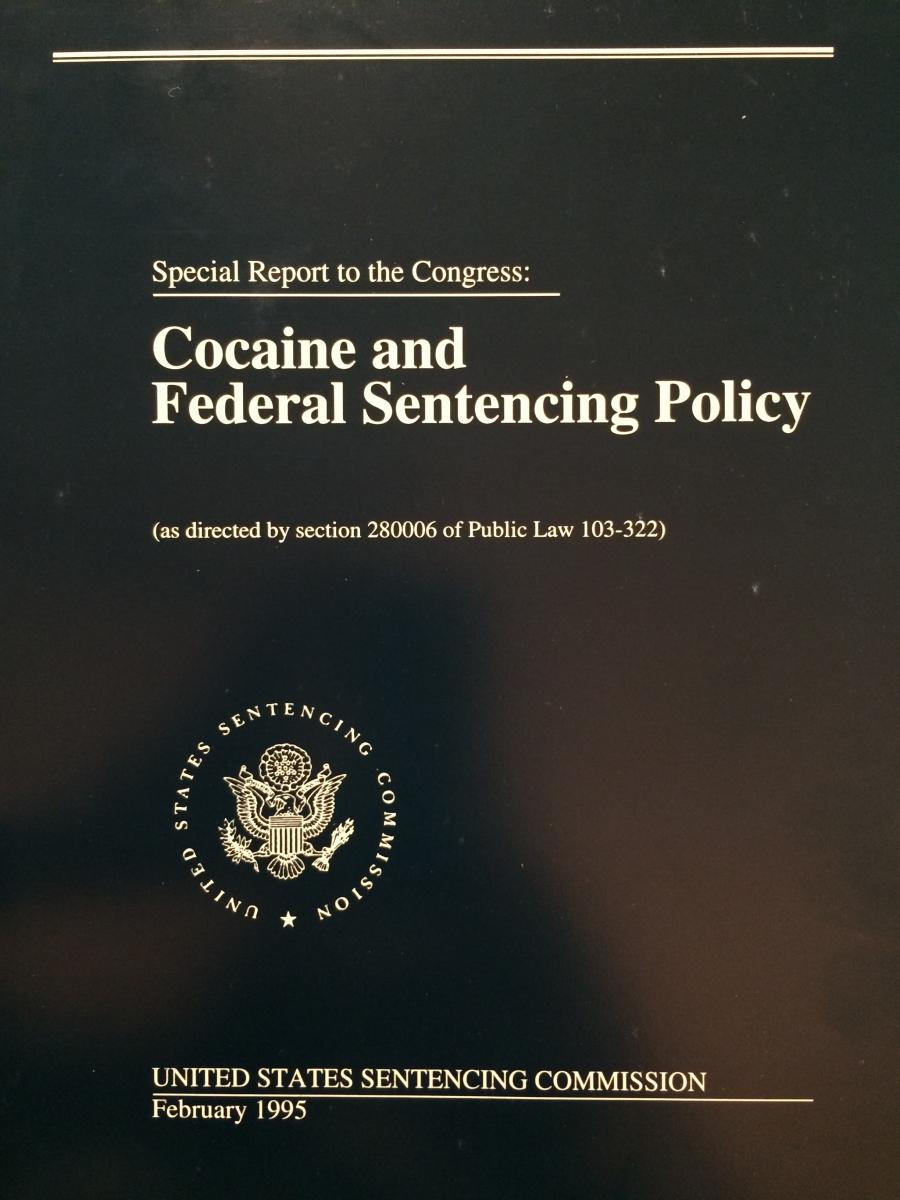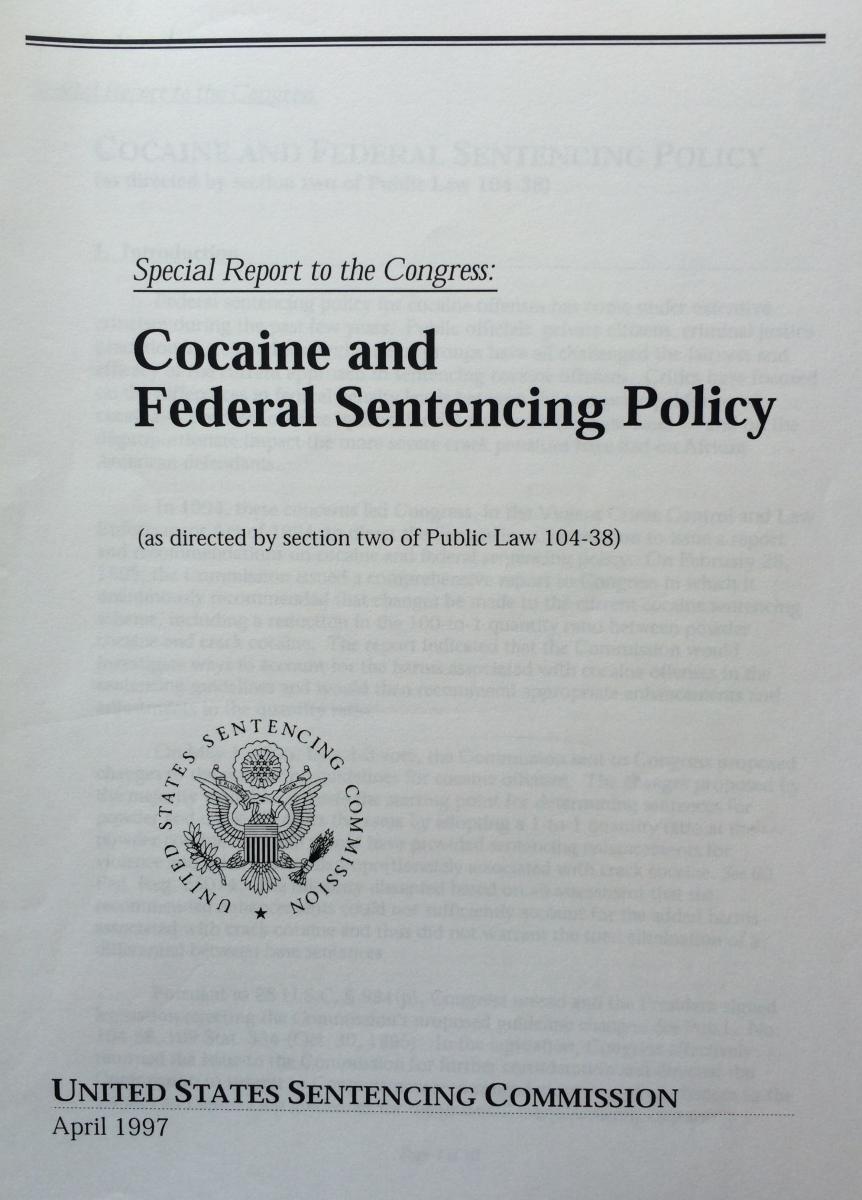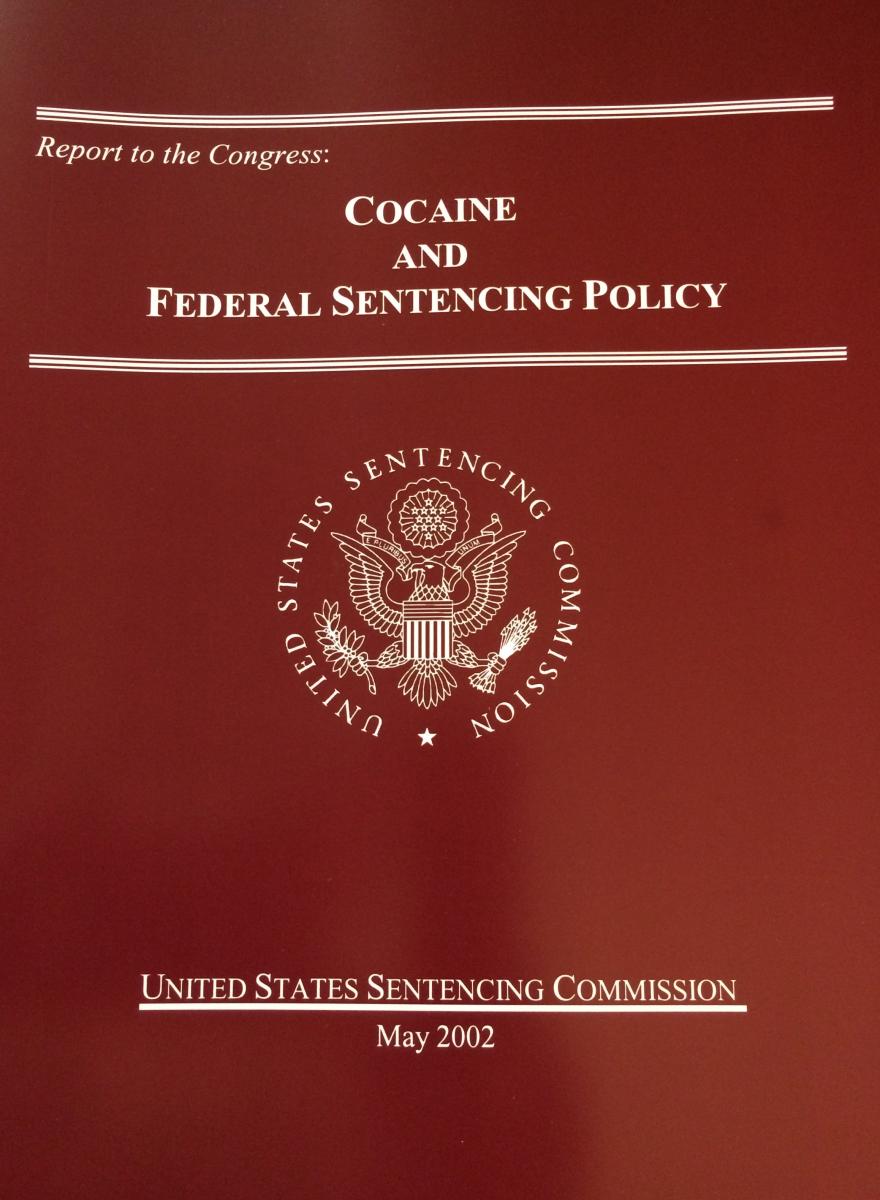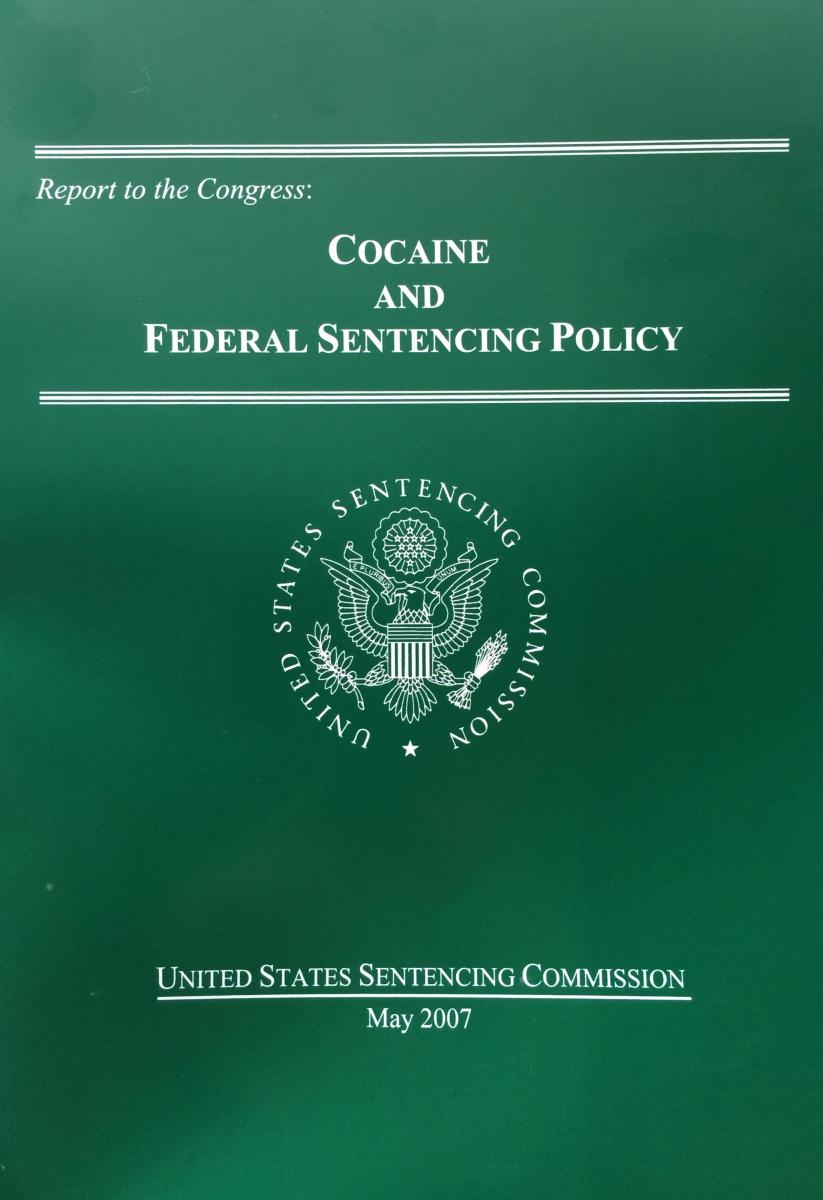Impact of the Fair Sentencing Act of 2010 (August 2015)
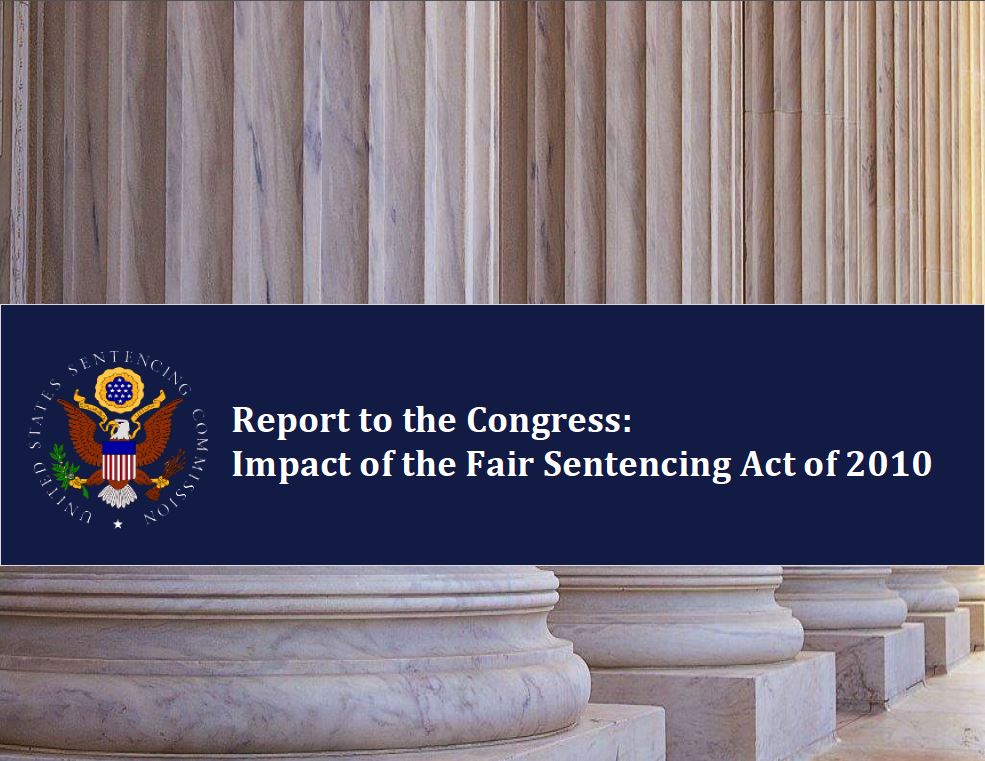
- Press Release
- Policy Profile (backgrounder)
- Full Report (browse by section below)
Section One
Section One of the report highlights the Commission’s primary findings on the impact of the Fair Sentencing Act of 2010. This section also provides a historical overview of federal cocaine sentencing policy since 1985.
Section Two
Section Two of the report analyzes the impact of Section Two of the Fair Sentencing Act of 2010 related to Cocaine Sentencing Disparity Reduction. It examines federal sentencing data to answer the following questions:
- What has been the impact of the FSA on federal prosecutorial practices?
- Are crack cocaine sentences more similar to powder cocaine sentences?
- What has been the impact of the FSA on the federal prison population?
- Has there been an increase in use of crack cocaine after the FSA?
Section Three
Section Three analyzes the impact of Section Three of the Fair Sentencing Act of 2010 related to the elimination of the mandatory minimum penalty for simple possession of crack cocaine.
Section Four
Section Four of this report analyzes the impact of Section Four of the Fair Sentencing Act of 2010 related to increased penalties for major drug traffickers, specifically fine penalties.
Section Five
Section Five analyzes the impact of Sections Five through Seven of the Fair Sentencing Act of 2010 related to enhancements for violence as well as increased emphasis on other aggravating and mitigating factors.
- Enhancements for Acts of Violence during the Course of a Drug Trafficking Offense
- Increased Emphasis on Defendant’s Role & Certain Aggravating Factors
- Increased Emphasis on Defendant’s Role & Certain Mitigating Factors
Conclusion
Endnotes
Appendix
Previous Reports on Federal Cocaine Sentencing Policy
For more than twenty years, the Commission has worked with the legislative, executive, and judicial branches of government and other interested parties to ensure that cocaine sentencing policy promotes the goals of the Sentencing Reform Act, including promoting proportionate sentencing and avoiding unwarranted sentencing disparities. Prior to the FSA, the Commission submitted four reports to Congress regarding cocaine sentencing, in 1995, 1997, 2002, and 2007, based on legislative history, scientific and medical literature, extensive analysis of the Commission’s own data, public comment, and expert testimony. These four reports are available below in chronological order. Click the thumbnail to view the full report.
Additional Commission work cited in the FSA Report:

